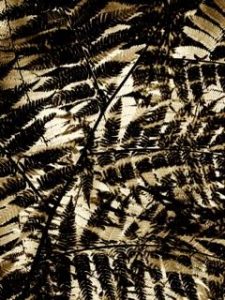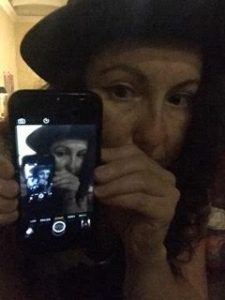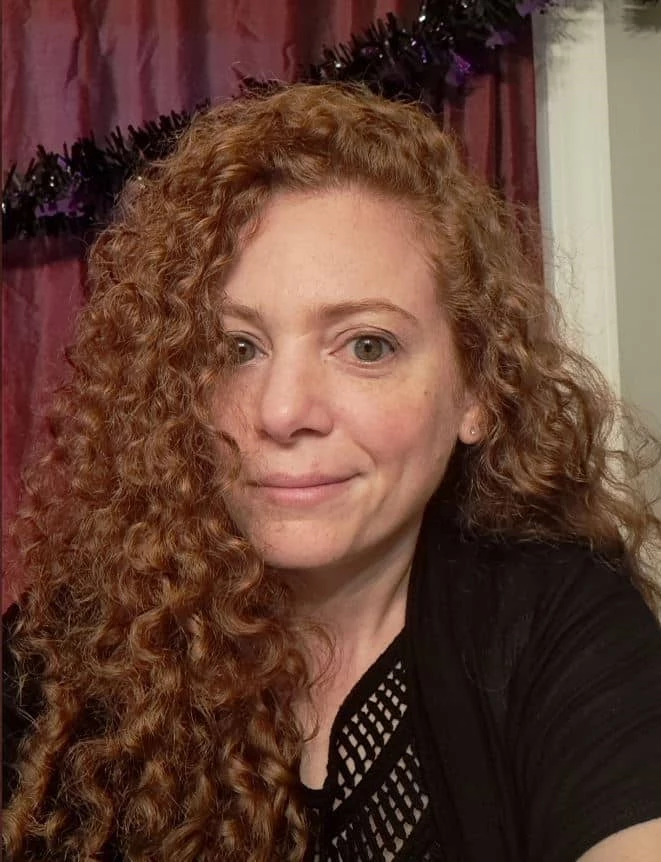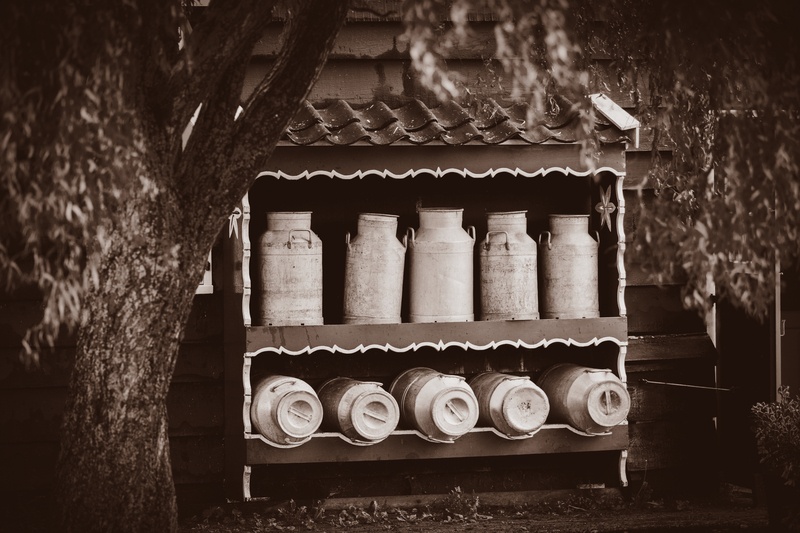
Do you remember the kid’s series “Scary Stories to Tell in the Dark?” I fondly remember taking those skinny volumes to summer camp, and reading them until I knew the stories by heart. Many of you have already realized the best part of that “scary” series is reading the stories to any elementary school aged child and knowing you are exposing them to something that is as scary as it is safe.
Helen Stubbs’s story “Uncontainable” felt to me like an incredibly grown up version of those elementary school stories. Why the comparison? Well, within a few paragraphs of the opening of “Uncontainable” you know something horrible is going to happen, you just don’t know what. As the story continues and hidden depths reveal themselves, you’ll suddenly be asking yourself which is more horrifying—the way the family treats their daughter, or the monster? And the best part? The thing that most reminds me of that Scary Stories series? Every time I reread “Uncontainable,” I wanted to immediately read it again, because at the end of the story I felt safe. I was creeped out, I was squirming in my seat, but I’d found a safe place to explore being scared of so many things. Being scared of being misunderstood, being scared of a physical creature who can kill me, being scared of not knowing how to communicate what I need. Other than the physical creature that can kill you, I think we all have anxieties about being misunderstood.
There is also the much larger, and ultimately more important dimension this story discusses about being an autistic child in a family that has effectively given up on you. Stubbs’s historically accurate portrayal of how families cared for (or didn’t care for) their disabled children is a much larger discussion, one which I hope readers will explore in the comments of the story or this interview.
Helen was kind enough to let me let me pick her brain on all things behind the scenes in “Uncontainable,” the cathartic experience of writing pointy stabbity edges, her writing process, and her newest projects. Helen Stubbs lives in Gold Coast, Australia, where she is heavily involved with the Galactic Chat podcast and the Aussie SF Snapshot among her projects. Her dark fiction has appeared in multiple magazines and anthologies including Mirror Dance, Next, Subtropical Suspense, Midnight Echo, and Tales from the Bell Club. She was awarded the Ditmar Award for best new talent, and her short story “The Perforation” won the AussieCon 4 short story competition. Her recent short story, “Casino Five,” was recently released on Amazon. You can follow Helen online at her blog helenstubbs.wordpress.com, and follow her on twitter where she is @superleni.
APEX MAGAZINE: The story involves Mrs. Morrison and her two children, the family’s maid, a boarder, and Good Wife Henny. The story gets creepier as it goes along, pulling the reader into Rochelle’s secret knowledge. What made you decide to tell this story from the boarder’s point of view? When you’re writing a story, how do you decide which character can best tell the story?
HELEN STUBBS: Let’s call the boarder “Alex,” although they don’t have a name in the story. Working from Alex’s point of view allows the story to unfold in traditional narrative shape, and for the reader to discover things along with them, and share their confusion, doubt, and shock. I think Rochelle knows too much for the story to work from her point of view. I did try to write it that way, though I wasn’t sure what her inner monologue would sound like. Part of the story’s tension is created through Rochelle’s usual difficulty communicating contrasted with her occasional eloquence.
I’d say Rochelle is the main character, while Alex is like a sidekick. The plot couldn’t unfold as it does without Alex, but Rochelle is really the key character. I would usually tell the story from the point of view of the main character, but there are advantages to having it slightly removed, especially when there’s a mystery.
AM: Rochelle is dismissed because her family has no idea how to deal with her autistic tendencies, but she’s highly observant and very protective of her brother. What inspired this story, and how did Rochelle develop as you were working on the story?
HS: The interesting thing is that Rochelle doesn’t try to communicate with her family, she only talks to Alex. I get the feeling that her family has given up on her, whereas Alex is new to the household and has more of an open mind. I think this sometimes happens in families … we tire of each other and underestimate each other, while greater expectations make room for unexpected performance.
In the story I wanted to bring out the strengths of a character with special needs, such as resilience and endurance. I also wanted to turn the spotlight on a character with a disability and show her weaknesses and her strengths. I think there’s a tendency to either look away from disability or look on with fascination, or with judgement and aversion, and I wanted to create a space where that was subverted. Alex isn’t judgmental and isn’t afraid to help, which is great, I think.
Lots of things inspired “Uncontainable.” One thing was that people with autism do love and empathize. (Or at least, every person I’ve met with autism does.) The Discovery and Education of a Savage Man (1802) also inspired me. It’s a true account by Jean Marc Gaspard Itard about the discovery and education of Victor, a boy who had grown up in the wild and was adopted by the scientist and author who initiated research and theory around education for people with special needs.
My son has ASD, too, and for a few years he was uncontainable, in the sense of escaping from preschool, school, and our locked-down home.
In early drafts of the story, Rochelle didn’t have a name, which is horribly dehumanizing, when I read over it. Finding the right name for her was an important leap for the story, and it is the right name, which reflects her strength, not her silence. I felt like I knew and loved her from early on.
AM: Why isn’t the boarder more shocked at the family’s treatment of Rochelle?
HS: Alex is fairly accepting of the Morrison family’s neglect because locking up and abusing people with disabilities has been common historically. Currently people with disabilities have a higher rate of abuse and are sometimes murdered because of their disabilities, or a carer’s inability to cope. As the writer I’m not condoning these tragedies, I’m spotlighting them and, ideally, starting conversations aimed toward providing people with disabilities and their carers with the assistance they need to close opportunity gaps and live enjoyable lives.
Care can be complicated, though. If you’re restraining someone from hurting themselves, are you helping them? If you force someone to wear clothes when they don’t want to, are you helping them? At a broader level, how should the community help people with disabilities and their carers? Alex helps by being there for Rochelle when her family is failing her.
AM: Will her experience with Good Wife Henny be a turning point for Rochelle? Will her family ever know what she’s done for her brother?
HS: I think her friendship with Alex is the main turning point for Rochelle, because now she has a friend, someone who is there for her and who listens to her. They can work together and help each other. Friends are important to everyone, and people with disabilities need them just as much as others.
I’m not sure if the rest of the family will find out about Rochelle’s talent, but Alfred will have a mutually protective bond with his sister. Seeing I’ve mentioned talent, can I clarify that I don’t want the story interpreted as suggesting all people with a special need also have a gift. Rochelle has a gift because this is fiction, and it is in addition to her disability, not because of it.
AM: In your author bio on your website, you use the phrase “stories that are dark with pointy edges.” How do you define pointy edges? What edges are you sharpening in your fiction, and what pointy bits have you found in the fiction of other writers?
HS: Pointy edges can be blades, teeth, and the surprisingly dark part of a story. Eviscerations are common in my work—just a little though. I don’t like the realities of dissection or surgery, but I rather love to write them, for example, the young husband chopped into tiny living parcels and carved into a living violin in “Sayuri’s Revenge,” and the poor alien abductee taken apart and then reassembled, in “Surgeon Scalpelfingers.” I find it cathartic to excise demons this way.
Other dark and sharp work that I love includes Darkly Dreaming Dexter by Jeff Lindsay, Debris by Jo Anderton, Kusheil’s Dart by Jacqueline Carey, and The Visitor by Sheri Tepper.
AM: Tell us a little about your creative process. About how long does it take you to write a short story? Are there ideas or themes you enjoy returning to in your fictional worlds?
HS: I write whenever I can snatch the time, often in the morning before anyone else awakens. My creative process varies, but usually my first drafts are quick. Usually I put them away for two weeks, or send them to a friend for a critique. After some time has passed, or the critique has come back, I’ll go over the piece several times, or several hundred times, until it looks right or I can’t face reading it any longer. I love feedback from editors, and if I’m lucky enough to get some I’ll tweak it according to their advice, unless it doesn’t feel right.
Themes that pull me back to them are defending those you love, being different, the contradictions of motherhood, nature (especially forests), human society, and connections between life, death, and dreams.
AM: You’ve been very involved with Aussie SF Snapshot 2016. What can you tell us about this project? How did you get involved with it?
HS: The Aussie Snapshot is a series of interviews spanning a two-week period. It’s hectic and fun. About twenty interviewers interview as many Australian SF writers, publishers, podcasters, and other SF-related people as we can. We’ve done about 200 interviews in each of the last two Snapshots. Here’s a link to my interview and the main page. The Snapshot has been done every few years since 2007, so it provides some historical and social insight to the growth of Aussie SF.
A friend invited me to join the team during the last Snapshot, possibly because I’d been doing Galactic Chat podcasts. Aussie SF has a great community. Although we’re scattered around a big country we keep in touch online and hang out at cons as often as possible.
AM: What’s next for you? Any new or recent projects you can tell us about?
HS: I recently attended Conflux in Canberra where I fan-girled on a panel about Labyrinth! That was fun, talking about how we all loved David Bowie from too young an age, and Sara’s fabulous independence and assertiveness, and the powerful messages about denying people power over you. A couple of us saw parallels between the Goblin King, Jareth, and Edward from Twilight, like he was a precursor to those predatory narratives. We found it disturbing that in Labyrinth, Sara refuses Jareth, whereas Bella enters a relationship with Edward.
Most impressively, Thoraiya Dyer made and wore a Fire Gang dancer’s head, with detachable eyes.
About my recent work, my most recent publication was a stand-alone short story on Amazon called Casino Five. I’m currently working on an edgy unicorn series, working title, The Unikorniverse. If you’d like to know more, say ‘hi’ to me on Twitter. I’m @superleni.












